Federal election 2019: our verdict on week three of the campaign
The PM and Opposition Leader had their hands full with some bad apples.
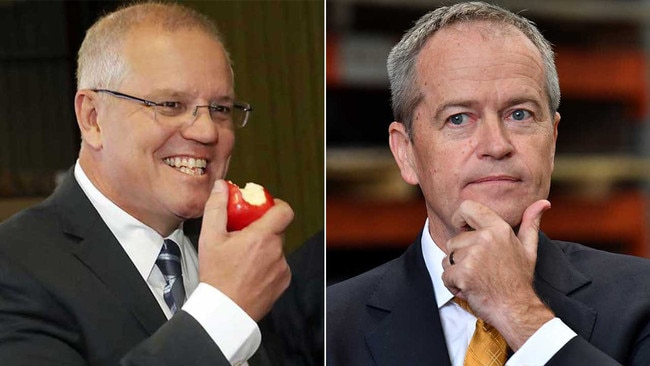
Every Friday during the 2019 federal election campaign, Chris Kenny and Troy Bramston will pass their verdict on the week that was. Here’s how our commentators saw the third week on the hustings, as candidate drama kept both leaders busy.
Election 2019 verdict: week one
Election 2019 verdict: week two
Kenny: Not a winner in sight
This must be losers’ week. The third week of the campaign has been replete with losers without a winner in sight.
Hitherto unheard of candidates have been scratched from the election race as their Islamophobic, anti-Semitic, rape culture and homophobic social media posts have come to light. It is yet another blow to the archaic concept of politics as a high-minded pursuit by the best among us for the betterment of all.
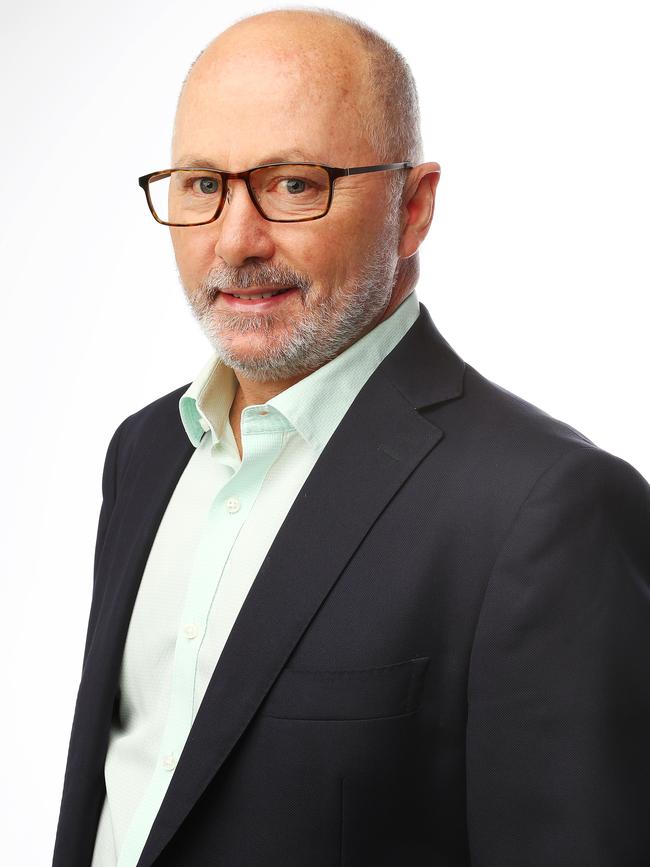
At least it gives us a break from the monotonous incompetence of the dual citizenship stuff-ups which have become as common as hidden camera footage of One Nation operatives disgracing themselves overseas. We’d like to think it is the candidates they reject that make our political parties the bastions of diligence and good sense that they should be; except that these are the candidates the parties selected, vetted and endorsed.
Quality control is not a concept easily applied to politics. Pauline Hanson, for instance, was rejected by the Liberal Party 23 years ago but that merely sparked a political career that has rivalled Neighbours for longevity, popularity — and substance.
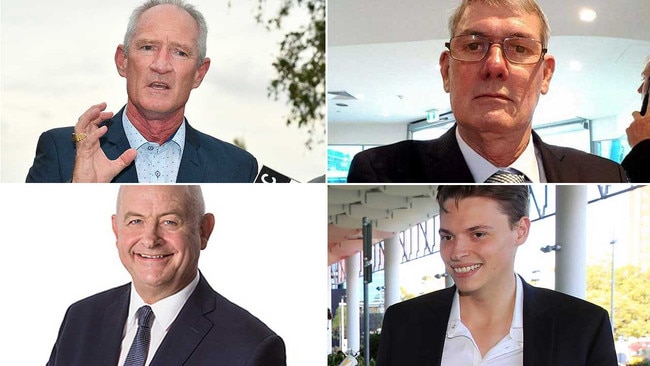
With all this noise around, it was a hard week for Scott Morrison and Bill Shorten to cut through. Even their first head-to-head debate was largely soporific, partly because of a stilted format but also because while these events are shunted onto secondary channels hosted by unfamiliar figures they are bound to become just part of the media white noise.
Tonight’s People’s Forum hosted by David Speers promises to be a more lively event but at 6.30pm on a Friday, limited to pay TV, it will struggle to penetrate public consciousness. With an increasingly fractured media it is more important than ever that we return to a series of prime-time campaign debates carried by most channels.
With the Liberals having the worst of the candidate carry-on and the debate’s studio audience judging him the winner, some commentators might give this week to Shorten. But that would be a mistake and only underline how broken and superficial our politics have become.
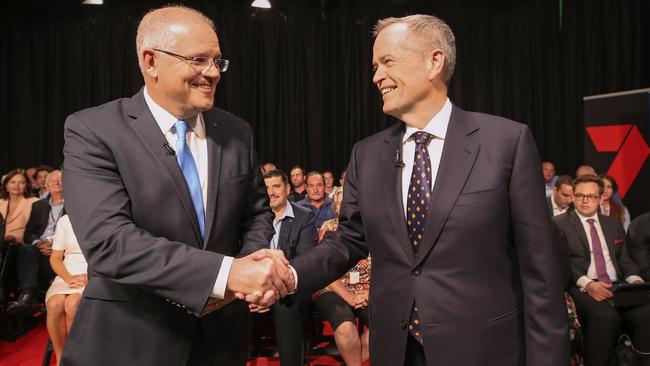
Last week the Labor Leader suggested any costing of his climate and energy policies would be a “specific mythical number” and this week he said both that it was not possible to cost his policies and that he was not going to get into a debate about the “scary numbers” produced by independent modelling of his ambitious policies.
Shorten is promising to more than double the renewable energy target, almost double the emissions reduction target and massively increase the prevalence of electric cars (including ensuring they make up half of the government fleet and that roads and buildings have recharging stations) yet refuses to provide any estimate of the cost of these policies. He is happy to say that “if we don’t change, then the cost will be far greater than any initial investments” — which must be one of the silliest and most contradictory statements made during a campaign.
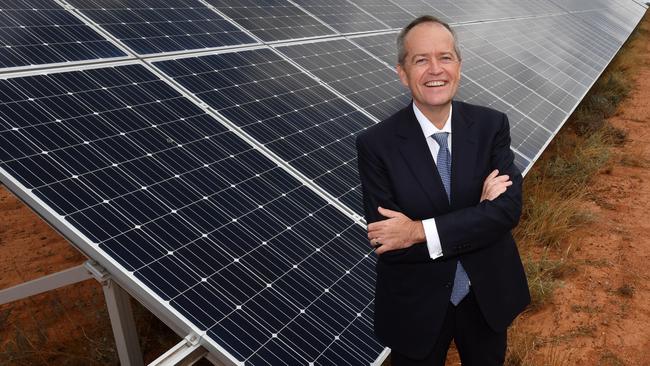
First, given Australia’s emissions reductions are globally minuscule and world emissions are rising by about double our total emissions annually, there can be no benefit from our reductions and no cost from not acting. That is just reality.
Second, if you don’t know the costs of not changing policies and you won’t provide a costing for your planned policies, how can you possibly say which “mythical” figure is highest or lowest? This is the inanity of what Shorten is putting to voters and any pundit who describes him as having any campaign success while spouting such nonsense is complicit in dumbing down our national debate to worrisome levels.
Shorten even grasped at Big Macs to explain his policy this week, suggesting that if someone was eating 10 burgers a day but reduced their consumption they would be hit by a cost. This is paradoxical and confusing stuff. Perhaps next week Shorten will finally provide a costing for his climate and energy policy and we’ll be asked if we’d like fries with it.
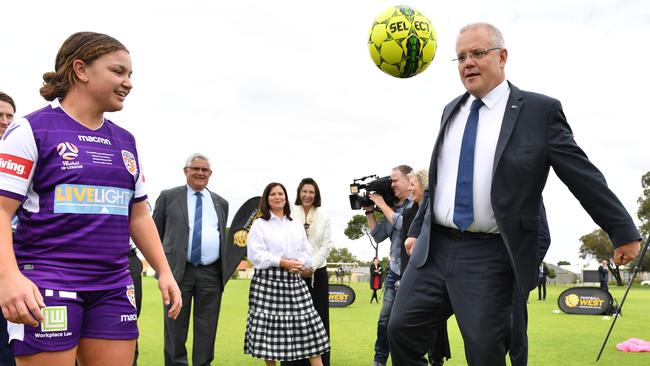
The Labor Leader is floundering. Every press conference, interview and debate exposes his dearth of answers. Which is why he is doing as few as possible.
Polling day can’t come soon enough for him. But Morrison has not delivered a knockout blow, and given he is starting from behind he will need to do more to highlight Shorten’s errors and obfuscations.
Not enough voters are seeing the Labor Leader refusing to answer pertinent questions. So Morrison must find a way to draw this to everyone’s attention.
Bramston: plenty of losers amid messy stalemate
Sorry to disappoint those who may be hoping to rack up wins for their political tribe in this weekly analysis of who performed better on the campaign trail. At the midpoint of the campaign, with so much claim and counter claim, I’m declaring this past week to be a draw between the major parties.

Both the Coalition and Labor had some good moments but they were offset by blunders and bad calls that render the week difficult to determine a clear winner. Both sides have lost bark in the campaign brawling this week. And they both had their share of loony candidates to deal with.
The first election debate saw no clear winner there either. The small audience scored it as a win to Bill Shorten, who did get more laughs and applause. But Scott Morrison was aggressive and unremitting in his attacks on Labor’s policies. This was the theme of the week.
Sure, Labor has a big and bold policy agenda. It wants credit for being brave enough to put these policies up in lights before the election. But it has made Labor a big target. Labor strategists concede attacks by Morrison and Josh Frydenberg on its tax policies are having an impact.
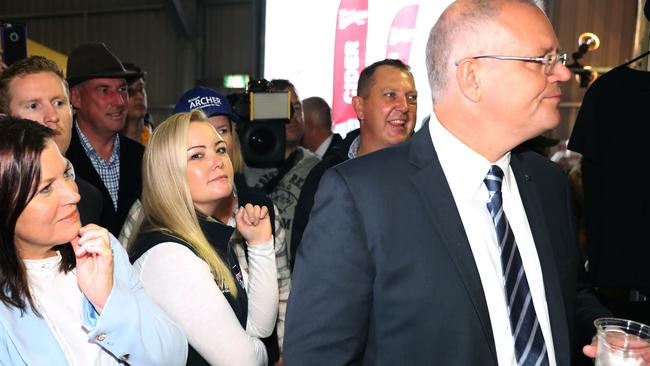
Yet Labor is rolling out much more policy than the Coalition. Labor has clear campaign themes such as health, education, cost of living, jobs and wages. This works to Labor’s benefit. Whether or not you agree with Labor’s policies, they do have a vision for a different Australia.
In contrast, the Coalition is spending much of its campaign in attack mode. We know that negative campaigning works. But the danger is that voters will disregard these relentless attacks as politics as usual and find the Coalition’s vision for another term in office wanting. The Coalition needs to return to its budget themes and demonstrate that it has a third term agenda.
Debate over the cost of Labor’s climate change policies again dominated the week. Frankly, Labor needs a sharper response to this question — something I’ve been arguing for weeks. Mark Butler, the shadow minister responsible, is useless. He can’t argue effectively for the policy nor successfully rebut attacks.
Shorten comparing the cost of not acting on climate change to fat people not eating Big Macs was a mistake. Shorten is a good campaigner — he won 14 seats at the last election — but he needs to improve his advocacy. And Labor needs to give him a better answer to the question: what is the economic cost of Labor’s climate change policies?
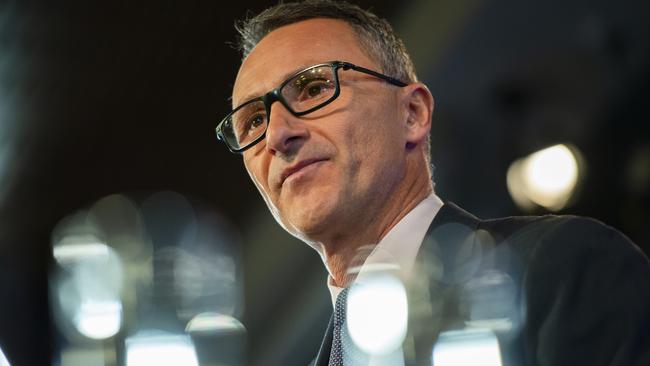
Meanwhile, the Greens are scrambling for relevance. They are hardly on the radar. Their pitch to revive a coalition with Labor like the disastrous Gillard-Brown pact in 2010 was wishful thinking. This was never going to happen, and Labor was quick to dismiss it.
The Liberals’ preference deal with Clive Palmer is damaging the party in suburban seats. So is the National’s preference deal with One Nation. Sure, the Greens are crazy — I get that. But Palmer is a buffoon and Hanson has made a career trading on xenophobia. They are all beyond the pale.
Another reason why there was no clear winner this week was the continued degeneration of the modern political class. One Nation’s Steve Dickson quit after being caught in a strip club groping dancers. Liberal and Labor candidates were invariably revealed to be sexist, misogynistic, racist, anti-Semitic, homophobic or just plain wacko.
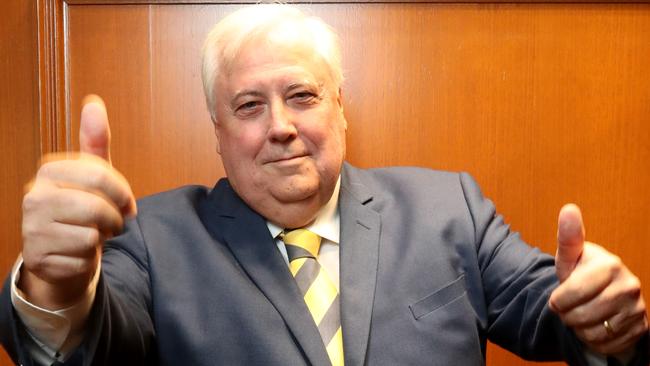
The Liberal candidate for the Tasmanian seat of Lyons, Jessica Whelan, has finally been disendorsed over her offensive anti-Muslim social media posts. The Liberals stood by her for too long. Labor lost Luke Creasey, its candidate for Melbourne, over his string of lewd, sexist and misogynistic social media posts.
As voters turned out in record numbers to cast their votes this week, the political parties continue in a race to the bottom. With a fortnight to go, it will only get dirtier and nastier. This is politics today. There may not be a clear winner this week but there was a clear loser: the voters.
